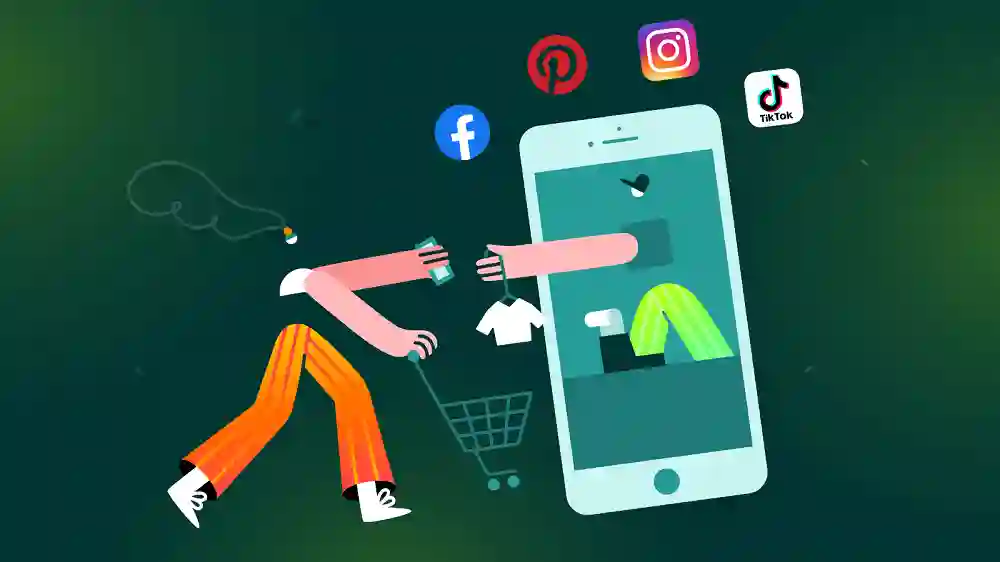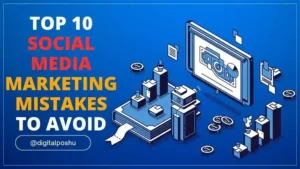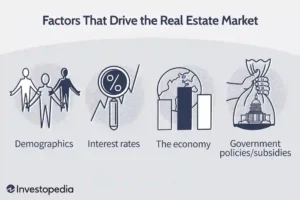How Social Media Drives E-commerce and Online Shopping

In today’s computerized period, Social Media Drives E-commerce and Online Shopping more than ever some time recently. With millions of clients around the world locks in with stages such as Facebook, Instagram, TikTok, and Twitter, these social systems have gotten to be effective devices for both businesses and customers. Social media’s capacity to interface individuals over the globe has revolutionized how items and administrations are promoted and sold online, making an biological system where businesses can straightforwardly connected with their target gathering of people and increment sales.
The Control of Social Media for E-commerce
Social media stages act as a bridge between e-commerce businesses and shoppers. The reach that these stages offer is unparalleled, making them an fundamental portion of any fruitful advanced showcasing technique. From natural posts to paid advertisements, businesses can utilize different strategies to grandstand their items, construct brand mindfulness, and drive potential clients to their online stores. Social media gives a one of a kind opportunity to lock in with clients on a individual level, cultivating believe and dependability, which is pivotal for expanding deals in e-commerce.
Targeted Promoting and Social Media
One of the key ways that Social Media Drives E-commerce is through focused on promoting. Stages like Facebook and Instagram permit businesses to target clients based on particular socioeconomics, behaviors, interface, and indeed area. This guarantees that promotions are seen by individuals most likely to be interested in a item or benefit. By utilizing nitty gritty focusing on highlights, companies can increment the probability of changing over sees into genuine deals. Social media advertisements can drive a critical sum of activity to e-commerce destinations, viably acting as a deals funnel.
Influencer Promoting and Its Affect on E-commerce
Influencer promoting is another viewpoint of social media that has incredibly affected e-commerce. Influencers, who as of now have huge followings, can advance items in an bona fide and locks in way. This shape of promoting taps into the influencer’s validity and gathering of people believe, empowering adherents to make buys based on the suggestions of somebody they respect. Numerous e-commerce businesses accomplice with influencers to grandstand their items, driving to expanded brand introduction and driving coordinate sales.
Shoppable Highlights on Social Media Platforms
Moreover, the rise of “shoppable” social media highlights has made it simpler for buyers to make buys without taking off their favorite stages. Instagram, for illustration, permits businesses to tag items in their posts, which clients can tap to purchase specifically from the app. These consistent integrative between social media and e-commerce make an easy shopping involvement, bringing down the obstructions between browsing and acquiring. The less difficult the prepare, the more likely clients are to total a purchase.
User-Generated Substance (UGC) and E-commerce
User-generated substance (UGC) is another capable driver of e-commerce through social media. When clients share their encounters with a item on social media, it gives social verification, appearing potential buyers that others have acquired and delighted in the item. Positive surveys, photographs, and recordings posted by clients can motivate certainty in modern clients, making them more likely to purchase. E-commerce businesses can use this UGC by reposting client substance on their claim profiles or joining it into their promoting campaigns.
Valuable Experiences from Social Media Analytics
Social media moreover offers businesses important bits of knowledge into client behavior and inclinations. Stages give nitty gritty analytics that track how clients lock in with substance, such as likes, offers, comments, and click-through rates. By analyzing this information, companies can refine their showcasing techniques, make better-targeted campaigns, and eventually drive more activity to their online stores. These bits of knowledge permit businesses to adjust rapidly to patterns and buyer interface, which is basic in the fast-paced world of e-commerce.
Creating Criticalness Through Social Media
Social media stages moreover make a sense of direness, empowering speedy acquiring choices. Limited-time advancements, streak deals, and select offers shared on social media can incite devotees to act quick and make a buy some time recently the offer terminates. These time-sensitive advancements regularly increment change rates, as clients do not need to miss out on a great bargain. By leveraging these time-sensitive campaigns, e-commerce businesses can viably drive deals through social media.
Building Client Dependability by means of Social Media
Additionally, social media makes a difference e-commerce businesses construct a steadfast client base. Brands that lock in with their supporters frequently, react to comments, and make a community around their items cultivate a sense of association with their clients. When businesses connected with their gathering of people on social media, they construct believe, energize brand promotion, and make long-term connections that go past fair a single purchase.
The Viral Potential of Social Media
Finally, the viral nature of social media can essentially boost e-commerce deals. If a item or showcasing campaign goes viral, it can reach millions of clients inside hours, making a enormous surge in online activity and deals. Social media has the control to make a item a family title in a brief period, which is something conventional showcasing strategies frequently can’t accomplish. Businesses that make shareable substance can advantage from natural word-of-mouth promoting, growing their reach exponentially.
Conclusion: Social Media’s Part in E-commerce Growth
In conclusion, Social Media Drives E-commerce and Online Shopping by giving businesses with a stage to reach their target group of onlookers, increment brand mindfulness, and boost deals. Whether through focused on publicizing, influencer associations, or shoppable highlights, social media has ended up a crucial device in the e-commerce scene. By leveraging the interesting perspectives of these stages, businesses can successfully drive activity, produce leads, and cultivate long-lasting client connections, making social media an irreplaceable resource in the present day e-commerce world.







